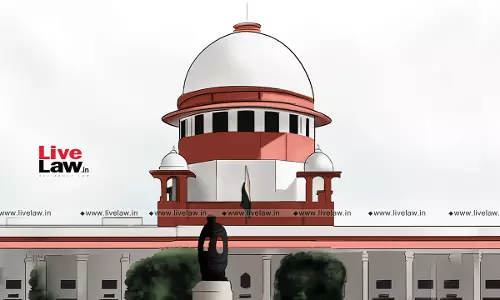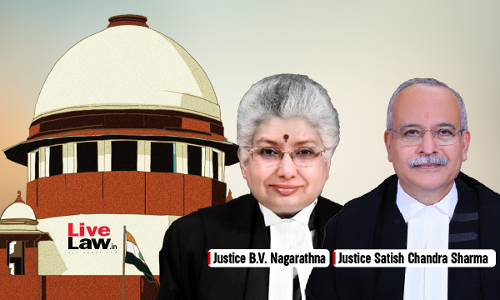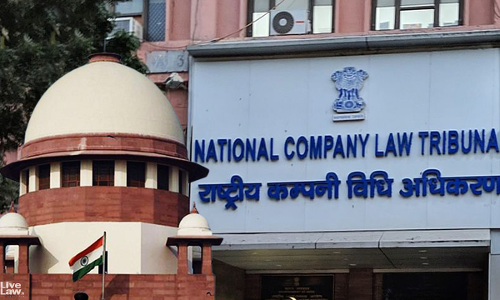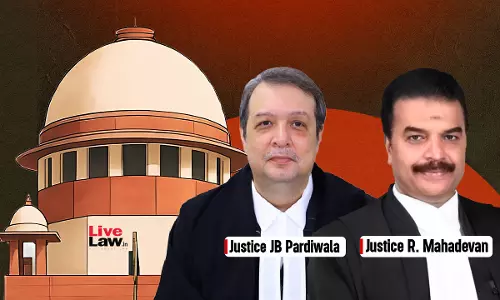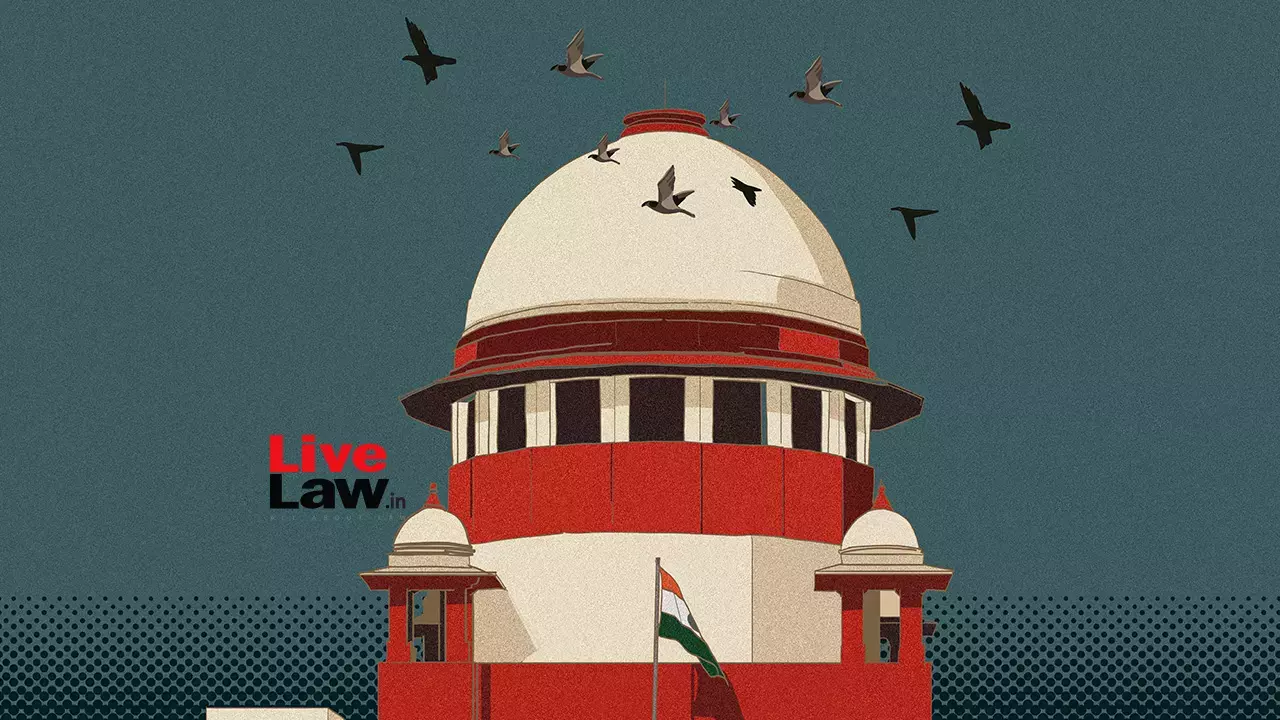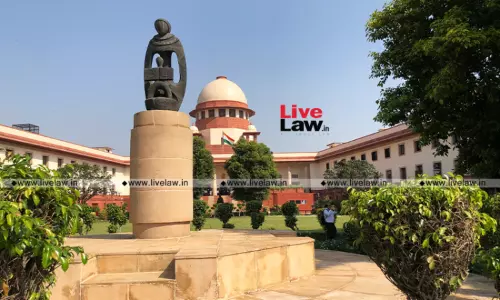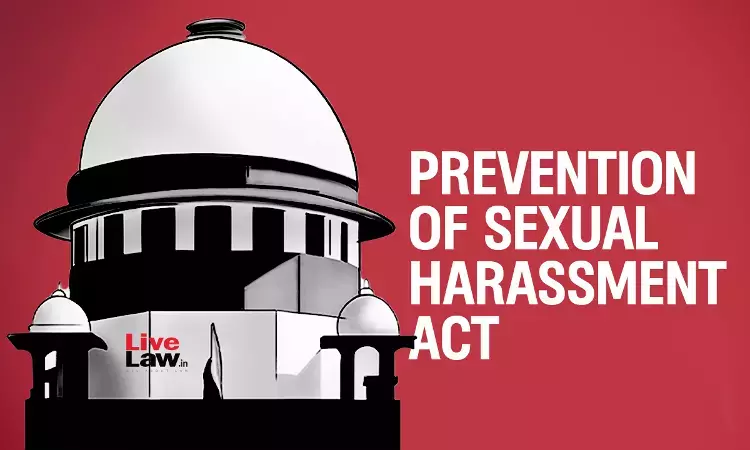Supreme court
Supreme Court Upholds Coal India's Dual Pricing Policy, Says 20% Hike For Non-Core Sectors Justified
In a crucial development, the Supreme Court on Friday (Sep.12) upheld Coal India Ltd.'s (“CIL”) 2006 interim policy that introduced a 20% price hike for non-core sector consumers. The Court validated CIL's “dual pricing” approach, reasoning that core sectors such as power and steel must be shielded from price increases due to their vital public utility functions, whereas higher prices...
Hindu Succession Act| State Cannot Invoke Doctrine Of Escheat To Challenge A Will Which Is Granted Probate : Supreme Court
The Supreme Court recently held that a State Government cannot invoke the doctrine of escheat under Section 29 of the Hindu Succession Act once a Hindu male has executed a Will, which has been declared to be valid and has been granted probate by a Court.The bench of Justice BV Nagarathna and Justice SC Sharma was hearing a challenge to the order of the Delhi High Court, which upheld the...
Supreme Court Monthly Digest-August 2025
[Citations 2025 LiveLaw (SC) 761 to 2025 LiveLaw (SC) 858]Abkari Shops (Disposal in Auction) Rules, 2002 (Kerala) - Rule 9(2) - Ethyl alcohol content in coconut toddy - Supreme Court on May 1, 2024, directed the government to reassess the appropriateness of 8.1% v/v limit for ethyl alcohol in coconut toddy - Expert Committee was constituted who recommended that maximum allowed ethyl...
NCLT, NCLAT Vacancies Must Be Filled On War Footing; RERA Must Be Adequately Staffed : Supreme Court
The Supreme Court directed the Union Government to fill up the vacancies at the National Company Law Tribunals(NCLT) and the National Company Law Appellate Tribunal(NCLAT) on a "war-footing"."Dedicated IBC benches with additional strength should be constituted. Services of retired judges may be utilized on ad hoc basis until regular appointments are made," the Court observed.The Court noted...
Is Offence Of Murder Made Out When Death Occurs Days After Fatal Injury ? Supreme Court Lays Down Tests
The Supreme Court ruled that the lapse of time between an injury and the victim's death does not, by itself, justify reducing a murder charge under Section 302 IPC to attempt to murder under Section 307 IPC, so long as the death is directly traceable to the injury. The Court clarified that the correct test is whether the death was a natural, probable, or necessary consequence of the injury....
Supreme Court Weekly Digest August 25 - 31, 2025
Animal Welfare – Vantara - Article 32 - Public Interest Litigation (PIL) - Supreme Court noted that present writ petition alleges unlawful acquisition of animals, mistreatment of animals, money laundering etc. with no material of probative worth or supporting evidence - Such petitions ordinarily be dismissed, but Supreme Court decided to call for an independent factual appraisal to verify...
S.5 Limitation Act | Delay Of Entire Period From Start Of Limitation Till Actual Filing Date Must Be Explained : Supreme Court
The Supreme Court has explained that for the purpose of condonation of delay in terms of Section 5 of the Limitation Act, the delay has to be explained by establishing the existence of “sufficient cause” for the entirety of the period from when the limitation began till the actual date of filing. If the period of limitation is 90-days, and the appeal is filed belatedly on the 100th day,...
Supreme Court Daily Round-Up : September 12, 2025
Links of today's reports :Right To Seek Remission Applicable Even When Convict Sentenced To Imprisonment For Remainder Of Life : Supreme CourtSupreme Court To Commence Hearing On Judicial Officers' Eligibility For District Judge Appointment In Bar Quota From September 23Supreme Court Expresses Concern Over Denying General Category Seats To Persons With Disabilities Scoring Higher Than...
When Sale Deed Is Void, Suit For Possession Governed By Limitation Period Of 12 Years Under Article 65 Instead Of Art 59 : Supreme Court
The Supreme Court on Friday (Sep.12) held that a suit instituted seeking possession of immovable property on the ground that the defendant's sale deed is void is governed by the 12-year limitation period under Article 65 of the Limitation Act, 1963, rather than the shorter 3-year period under Article 59 of the Act. A bench of Justices J.B. Pardiwala and R. Mahadevan clarified that...



